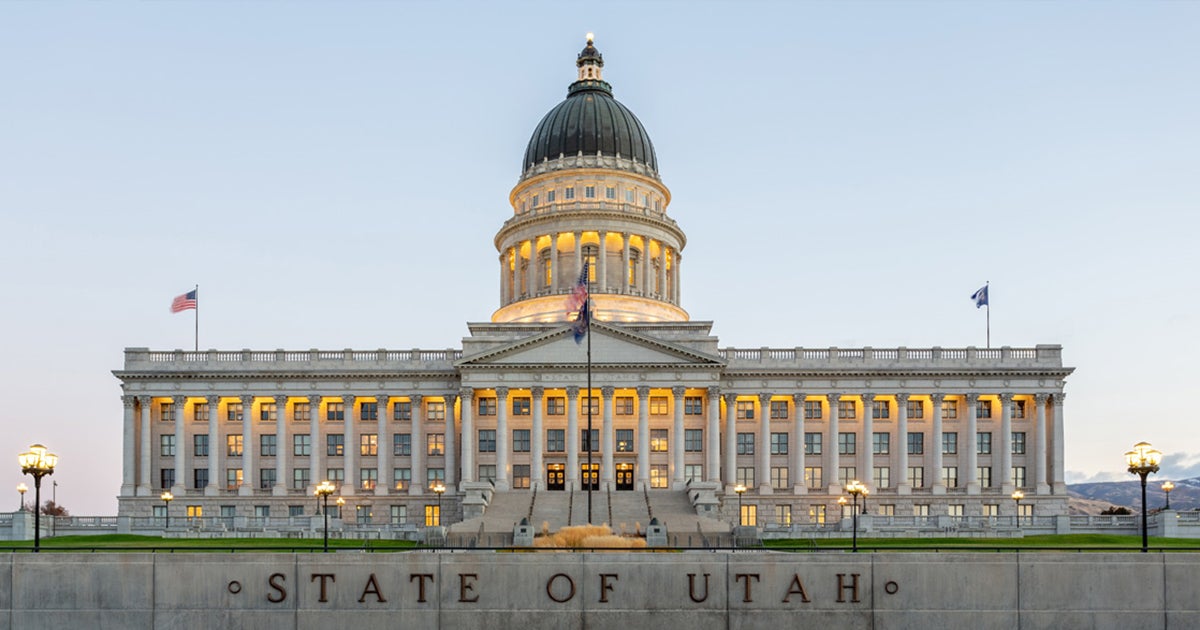
by Jorge Gomez • 5 min read
There’s renewed hope for religious freedom across America. It’s in large part thanks to First Liberty’s Supreme Court victories in recent years that changed decades of bad precedent. These wins ushered in a new era for religious expression—and gave Americans more religious freedom than they’ve had in 50 years.
Now, state legislatures are taking positive steps to protect religious liberty. Here’s a quick rundown of several bills being considered.
‘Religious Freedom Restoration Act’ Bills Advance in Iowa and Utah
Both Iowa and Utah are considering their own versions of the Religious Freedom Restoration Act (RFRA). Those bills are making their way through both houses of each state legislature.
You can track the Iowa bills here: Senate File 2095 and House Study Bill 614.
You can track the Utah bill here: S.B. 150.
These bills would prohibit government from substantially burdening a person’s right to exercise religious freedom unless the burden is essential to furthering a “compelling governmental interest” and is the least restrictive means of furthering that interest.
The language in both the Iowa and Utah versions mirrors the that of the federal Religious Freedom Restoration Act, one of the most important laws protecting religious liberty. That law states the federal government must accommodate religious practices when it can. It also gives citizens their day in court when they believe the federal government has violated their rights.
At least 24 states have their own RFRAs with varying degrees of protection. Some states have looser and broader RFRAs, while others have statutes or even constitutional provisions that offer much stronger religious liberty safeguards.
Out of all 50 states, Utah currently ranks 11th and Iowa 33rd when it comes to protecting religious liberty, according to the 2023 Religious Liberty in the States Index—published by First Liberty’s Center for Religion Culture & Democracy.
Having a RFRA is a key measure of how well a state protects religious freedom. Adding that crucial safeguard to their laws or constitution would certainly be positive for people of faith in Iowa and Utah.
Learn More:
Desert News: Utah’s version of the Religious Freedom Restoration Act passes the Senate
Iowa Capital Dispatch: Iowa Senate Passes Religious Freedom Legislation
Tennessee Legislature Passes Bill to Protect Religious Leaders
Two companion bills—HB0878 and SB0596—were recently passed by the Tennessee House and Senate, respectively.
The proposed legislation states that a person is not required to solemnize a marriage if the person has an objection based on conscience or religious beliefs. This will be especially helpful to protect clergy from being forced to perform weddings or ceremonies that run contrary to their faith.
The bill will be sent to Gov. Bill Lee for action. If signed, the new law would go into effect immediately.
Tennessee ranks 12th in the 2023 Religious Liberty in the States Index. According to our review, the state did not offer any exemptions for marriage and wedding participation. Adding this protection to state law would add a key protection for religious leaders.
Learn More:
Tennessee Conservative: Tennessee Senate Votes to Protect Religious Freedom For Clergy
Multiple States Considering Faith-Based Chaplains in Public Schools
In 2023, Texas Governor Greg Abbott signed a law giving public school districts an option to choose whether they want chaplains to serve as counselors in their schools.
Now, lawmakers in Alabama, Florida, Georgia, Indiana, Iowa, Kansas, Maryland, Mississippi, Missouri, Nebraska, Ohio, Oklahoma, and Utah have all introduced school chaplain legislation in their current legislative sessions, as TIME reports.
As our legal experts explain, government chaplaincy programs have a long history, and courts consistently uphold them in a wide variety of circumstances, including the military, prisons, hospitals and legislative bodies.
Of course, schools may not coerce students to engage in religious exercise. Chaplain services should be strictly voluntary for students to use.
Nonetheless, we want to be clear that these programs are constitutional. In Kennedy v. Bremerton School District, the Supreme Court rejected the notion that the mere presence of religious activity is somehow coercive. Instead, the Court found no coercion “where there is no evidence anyone sought to persuade or force students to participate.”
First Liberty, Texans for Excellence in Education and the National School Chaplains Association are partnering to provide support and legal clarity on this topic.
We have a helpful model policy and a list of FAQ’s, which you can find here.